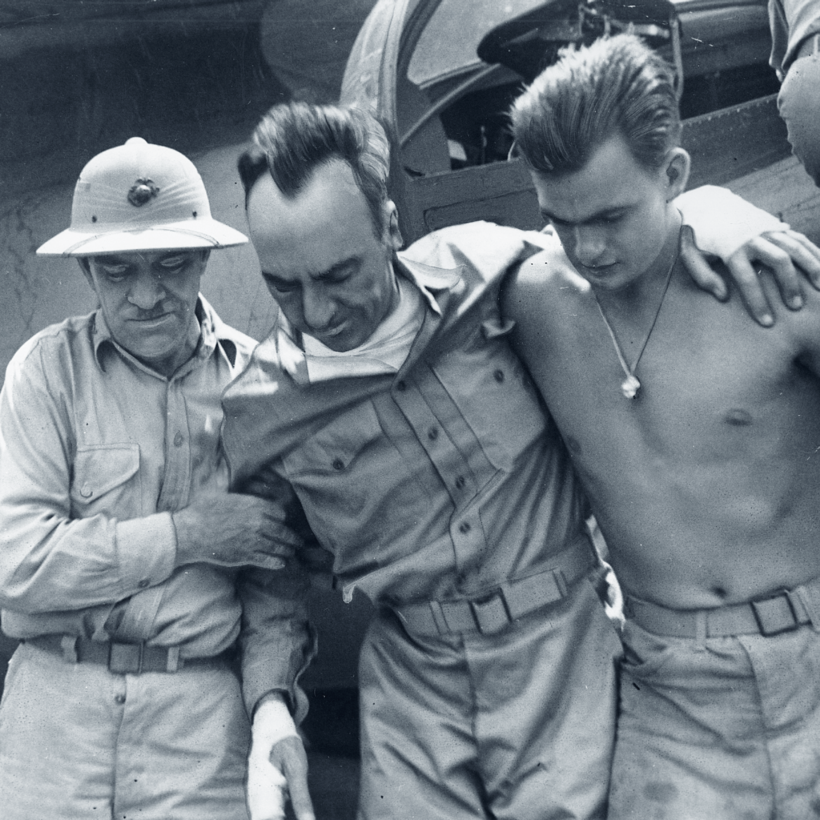Colonel Hans Christian Adamson, a pilot in the United States Army Air Corps and a close friend of the World War I hero Eddie Rickenbacker, accompanied Rickenbacker on his 1942 flight across the Pacific. The soft-spoken, bookish Adamson had been a pioneer aviator, and the 52-year-old, only three months Rickenbacker’s senior, would give Rickenbacker a companion who shared not only a similar age but also a love of aviation.
In early 1942, Adamson, an agnostic, visited an old Army Air Corps associate named Freddie Brisson at his home in Hollywood, California. The two loved reading and discussing topics such as religion and philosophy. Brisson, who had become a respected film producer, married actress Rosalind Russell, a devout Catholic, and they settled into their Hollywood life.


